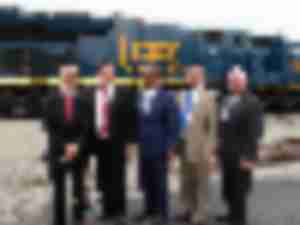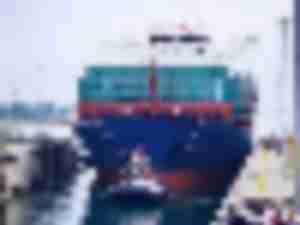DP World buttressing Canadian presence by coming to Port Saint John
Port Saint John officials have announced a lease agreement with DP World for the operation of its container terminal within the context of the largest private and public sector investment in the New Brunswick port in decades. This means that starting on January 1, 2017, DP World will replace Logistec Corporation, which has been managing the Rodney Container Terminal for 20 years.
Ocean Carriers - underwater or not?
The second quarter of 2016 saw the emergence of the new “Ocean Alliance” in the wake of CMA’s purchase of APL and an operating agreement with OOCL, COSCO and Evergreen.
EXIM Bank - Open for Business?
Last week “The Citizen” announced that China’s EXIM Bank has secured a $7.6 billion loan to upgrade the Central Railway Line in Tanzania from narrow to standard gauge.
Northwest Seaport Alliance – Berth of a Mega Port
With the creation of the NWSA in August of 2015 the ports of Seattle and Tacoma integrated their operations forming a mega complex spanning 25 miles of Puget Sound. So what’s happened in the year that followed?
North Carolina Ports, CSX to begin Wilmington-Charlotte rail link
A new intermodal rail link to begin in September between the North Carolina State Ports Authority’s Port of Wilmington and the CSX intermodal terminal in Charlotte is being touted as a game-changer.
The “FAST” ACT in Motion
In December President Obama signed the bill into law authorizing $305 billion in federal funds over five years for rail, highway development, public transportation and motor vehicle/motor carrier safety not know as FAST.
Dangerous Ground – The Lawless Sea
It was announced last week the Permanent Court of Arbitration (PCA) in The Hague ruled in favor of the Philippines in their dispute with the People’s Republic of China over territorial claims in the South China Sea. Shortly after the announcement, Beijing rejected the ruling as illegal while Washington immediately chimed in with a statement that The Hague ruling was both legal and binding.
Olympic Challenge – Brazil
With the games just around the corner, the official website Rio 2016 says, “Rio is ready to welcome the world”. But is it really?
Locking Through – New Challenges for Panama
With the transit last month of the “Cosco Pacific Panama” (9,472 TEU) through the new set of locks, Panama and the ocean carrier industry ushered in a new era in container shipping.
Terminal Velocity – Automation in America
\As ocean carriers strive for greater productivity and less dwell time, terminal operators look toward automation as an answer to the question "How do I get containers in and out of my gates faster?"
© Copyright 1999–2024 American Journal of Transportation. All Rights Reserved











